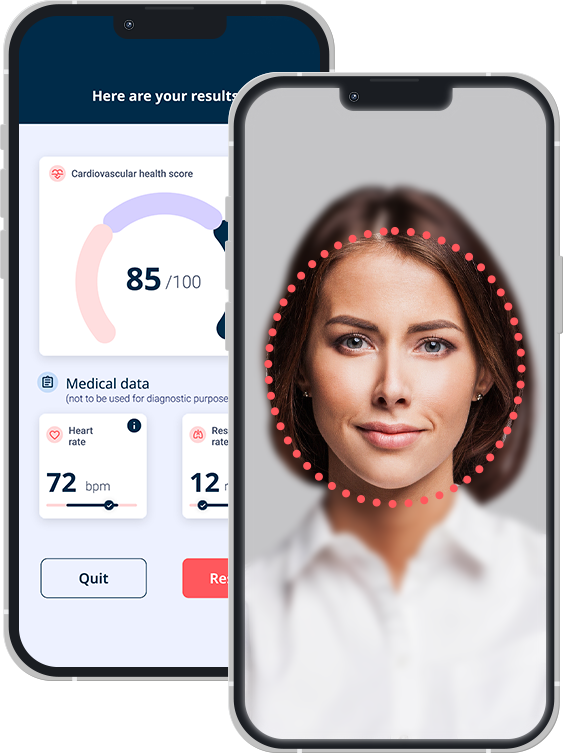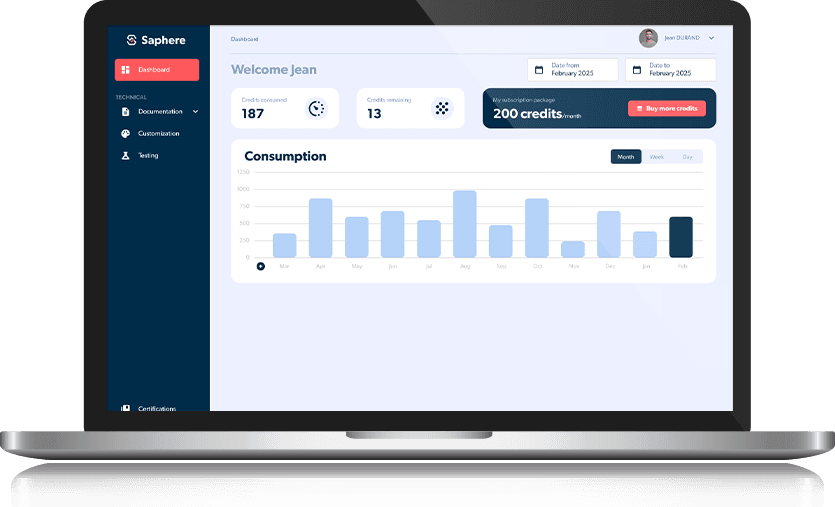Heart Rate
Heart rate is a fundamental indicator of cardiovascular health. It provides insights into overall fitness, stress levels, and potential cardiac conditions. Abnormal heart rate patterns can signal arrhythmias or underlying heart disease, making continuous monitoring or spot checks valuable for early detection and prevention.
Heart Rate Variability (HRV)
HRV measures the variation in time between consecutive heartbeats, reflecting autonomic nervous system function. A higher HRV is associated with better stress resilience, cardiovascular health, and overall well-being. Low HRV, on the other hand, may indicate stress, fatigue, or underlying health risks.
Respiratory Rate
Respiratory rate is a key metric for assessing lung function and overall health. An elevated or decreased rate can indicate conditions such as respiratory distress, infections, or metabolic imbalances. Continuous monitoring supports early intervention and better respiratory health management.
Hypertension Risk
Hypertension (high blood pressure) is a major risk factor for cardiovascular disease and stroke. Monitoring related vital signs helps in detecting early warning signs, enabling timely lifestyle adjustments, medical intervention or hospital admission. By assessing this cardiovascular disease risk, individuals can take proactive steps toward circulatory system health.





